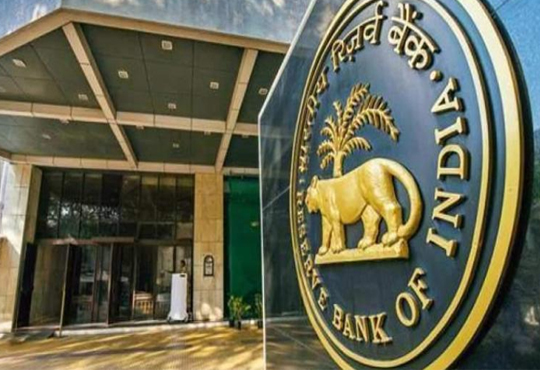
RBI to reduce reverse repo rate to encourage banks to lend
CIOReviewIndia Team | Friday, 17 April 2020, 13:15 IST

The Central Bank of India unexpectedly reduced its key deposit rate on Friday, for the second time in three weeks this month, to discourage banks from parking indolent funds with it and spur lending instead, to revive a flagging economy amidst the COVID-19 lockdown.
The Reserve Bank of India reduced its reverse repo rate INRREP=ECI by 25 basis points to 3.75 per cent with immediate effect. The rate had been cut by 90 bps on March 27 2020.
The Federal Bank kept its benchmark lending on repo rate INREPO=ECI unaltered at 4.40 per cent after a cut of 75 bps last month.
Since his last address on March 27, Governor ShaktikantaDas said, “India’s economic and financial landscape has ‘deteriorated precipitously’ in some areas”. “The surplus liquidity in the banking system has risen significantly in the wake of government spending and the various liquidity intensifying measures undertaken by the RBI”.“In order to encourage banks to deploy these surplus funds in investments and loans in productive sectors of the economy, it has been decided to reduce the fixed rate reverse repo rate,” he added.
Indian banks had been wary of lending over the last few quarters as the economy cooled, and only those fears have only increased in recent weeks as business activity crumbled.
Banks have parked 4.36 trillion rupees which is USD 57.02 billions on average with the Central Bank over the last three weeks, highlighting the extent of surplus rupee funds in the system.
“It is doubtful whether this flow can be stemmed easily,” said Joseph Thomas, Head of Research at Emkay Wealth Management.
“Banks are not lending or investing because they fear that under the current conditions they may be adversely impacted,” he added.
The RBI announced another round of targeted long-term repo operations and other important regulatory measures for banks in India.
“Today’s announcements by RBI will greatly enhance liquidity and improve credit supply,” the Prime Minister of India said on Twitter. “These steps would help our small businesses, MSMEs, farmers and the poor,” he added.
“We think more targeted coordinated fiscal and monetary measures may be needed with increasing growth downside risks backed by depth and longevity of COVID-19,” said Madhavi Arora, a lead Economist with Edelweiss.
CIO Viewpoint
Fintech: Emerging Fintech Trends To Watch Out...
By Sourabh Chatterjee, President & Head - IT, Web Sales & Travel, Bajaj Allianz General Insurance
By Ann Winblad, Co Founder, Hummer Winblad Venture Partners
Changing Times in for Financial Technologies
By Rajeev Bhatia, Head IT, NSDL Payments Bank
CXO Insights
How Financial Services Companies Are Striving...
By Jyoti Prakash, Regional Sales Director, India & SAARC Countries, Splunk
RPA In Action In The Financial Sector
By Pavan Kishore Kota Subramanya, Director, Intelligent Automation, Fiserv
Innovation is the Key Factor for Fintech to...




.jpg)
.jpg)



